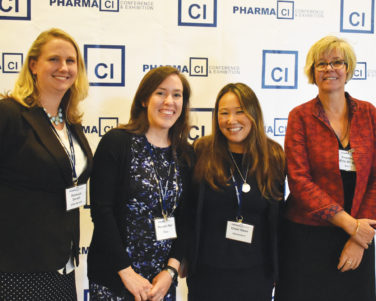Most of us are creatures of habit, and operating inside our comfort zone has a good deal of benefits. Routine behaviors allow us to be efficient and plan our work without undue stress, but we also know the downsides of staying too long inside our comfort zone. The conversation at this year’s Pharmaceutical Management Science Association (PMSA) Annual Meeting emphasized the need for the pharmaceutical industry to push the boundaries and step outside of its comfort zone. If we are to benefit from advanced analytics, AI, machine learning, wearables, and the new types of data they offer, it is time to leave the comfort of traditional analytics approaches.
I’ve enjoyed the PMSA event for years and find it is an excellent forum for the pharma organizations to talk all things analytics. Here is where passionate life sciences data innovators and visionaries come together to share ideas, both in a structured educational format and during open networking time.
The spirit of innovation was energizing as this year’s keynotes, session presenters, and attendees discussed the many ways in which pharma analytics impacts patients, from discovery and clinical applications to social behavior. Under the overarching conference theme of “Discover the Magic: Leading Trends in Pharma Analytics,” both keynote speakers, Dr. Joel Selanikio of Magpi and Kevin Noble of Genentech, spoke to the need for pharma to embrace both the uncertainty (i.e., exit the comfort zone) and opportunity for breakthroughs that come with an unprecedented acceleration of technology.
How Pharma Data Analytics Needs to Change
According to Dr. Selanikio, nontraditional sources such as smartphones, shopping data, and wearables, as well as the science of AI and machine learning are disrupting the way pharma analytics are done. The industry is challenged to consider how to understand and integrate the new forms of data which, in turn, can bring even richer data and deeper perspective on what is going on in a particular condition or therapeutic area. The goal is to make these new types of information useful in delivering better care, or to introduce different types of care to reduce suffering.
Mr. Noble also focused on the pharma industry’s mission of serving as stewards of patient safety and health, and the responsibility that comes with this mission. For instance, the impact of cancer is not limited to the patient—it reaches far into the patient’s immediate family, friends, colleagues, caregivers, fellow patients, the community, etc. This is why we have a responsibility to put the most innovative tools to work to bring more insights to patients every day. Today, that means venturing outside the traditional life sciences data sources and science.
There was also a marked trend at the event to focus on “data as data” to solve challenges, no matter where that data comes from. The problem-solving view of data encourages us to open up to new concepts, analyses, and insights that data scientists from any field can introduce.
As someone who works with data every day, I began to think of my own role in the process. My colleagues and I have access to billions of data points from thousands of sources. Some of this data, such as education, income, community involvement, and neighborhood safety, has recently been shown to impact the patient’s journey and outcomes. For example, if we can identify an individual with high blood pressure as a non-adherence risk, we can put measures in place to incent him or her to adhere to the treatment protocol.
It struck me that data which can help the pharma industry make a difference in patients’ lives is within our reach—just outside the comfort zone. Let’s step up to the challenge of harnessing new data, and we can take stock at PMSA next year!








